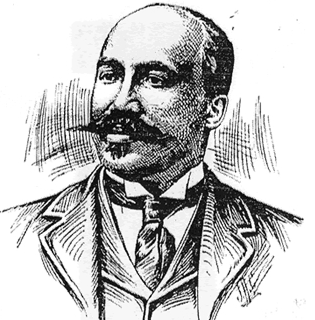DC Law Said African Americans Could Eat Anywhere. The Reality Was Different.
Emanuel Hewlett (Class of 1877), the first African American graduate of BU Law, featured in the Washington Post.
The late 19th century was not a good time to be an oyster in Washington. You were going to get eaten. It was just a question of when and how.
Odds were that you were going to be steamed or fried and then consumed at Harvey’s, the leading oyster house in a city full of them. In 1866, according to John DeFerrari’s “Historic Restaurants of Washington, D.C.,” Harvey’s was serving 500 wagonloads of the tasty bivalves a week.
Located at 11th Street and Pennsylvania Avenue NW, Harvey’s was an establishment restaurant, a place for Washington’s lawyers, politicians and businessmen to meet and eat. And it was where Emanuel Molyneaux Hewlett decided to go for a meal on Dec. 5, 1887.
[Remembering the ‘Lost Laws’ of Washington]

E.M. Hewlett was pretty established himself. He was the son of the first African American instructor at Harvard University, Aaron M. Hewlett, who oversaw the college’s state-of-the-art gymnasium. He was the first black graduate of the Boston University School of Law and had a busy D.C. legal practice. He was a leading citizen in Uniontown, as Anacostia was called then, and his sister Virginia was married to Frederick Douglass’s son Frederick Douglass Jr. (with whom, it must be said, he feuded).
On the evening in question, the 36-year-old Hewlett stopped at Harvey’s to dine with a Dr. Curtis of the Bureau of Pensions, who was also black. The pair chose a table on the first floor, then sat for about 10 minutes as several waiters passed them. Hewlett finally stood and approached a waiter and ordered fried oysters.
Another 10 oysterless minutes passed. Finally, Hewlett went up to William Harvey, nephew of the restaurant’s owner.
“My God,” Harvey said. “I can’t stand that. What do you want here?”
Hewlett replied that he wanted oysters.
“You can’t get them here. Get out of here.”
Hewlett filed a complaint against Harvey’s, claiming it had violated the Equal Services Acts of 1872 and 1873, which forbade racial discrimination in D.C. restaurants. After hearing the evidence, Judge William B. Snell did as he had done in earlier cases: He imposed a $100 fine against Harvey’s. The restaurant vowed to appeal.
Related News
- “Advancing Justice From Day One,” a mural installed to honor BU Law alumni—including E.M. Hewlett—who have fought for the rights of the disenfranchised
- A History of Diversity at BU Law
- Jeremiah E. O’Connell (Class of 1908) Named to Rhode Island Heritage Hall of Fame
- Representing the Disadvantaged: Seymour James Jr. (’74)